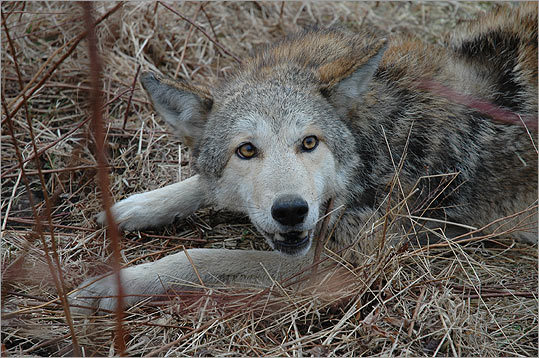
With rising coyote-human conflicts and even a young Canadian woman killed by coyotes in the last year, researchers are taking a closer look at the predator. The Eastern coyote is of even more interest as they are not native to the area and tend to be larger than their Western counterparts.
The biologist, Diana Prince, has been tagging coyotes with GPS trackers, watching their activity and determining where and why coyotes come into human territory.
“Why were we seeing more coyotes? People were the reason,” she says.
And she is now working to educate those people and get them to stop feeding coyotes, eliminate the food source that attracted them and even shoot them or trap them if they become a problem.
“Keeping the fear of humans in coyotes is the way to ensure they stay in their own space.”
While it’s been a tough sell for some nature lovers that enjoyed seeing coyotes in their yards, Prince tells them it’s better for the coyotes in the end too. The story of the demise of one pack Prince tracked is evidence.
Their human subsidizers lost
interest as winter came on, and the pack, the computer shows, tried in
vain to regain their old territory from DeCastro’s gang. Some ended up
as road kill, others began hanging around schoolyards, looking for
handouts. The alpha female, pregnant, alone, and desperate, wandered
from place to place, begging handouts from Salve Regina University
students, raiding dumpsters, finally denning up to give birth amid
Newport’s mansions at Ochre Court and Narragansett Avenue.She
constantly moved her pups and searched for food, following dog walkers
and raising panic among parents who feared for their children and
realtors who feared for property values. Finally, in May of 2007, the
Newport Police Department shot her and euthanized her surviving pups.
“It was a case of human intervention from start to finish,” says
Charlie Brown, a wildlife biologist with the Rhode Island Department of
Environmental Management.
Check out the whole story. It is definitely worth a read.
Start putting fear in coyotes with The Complete Predator Hunter book.

This is so true!